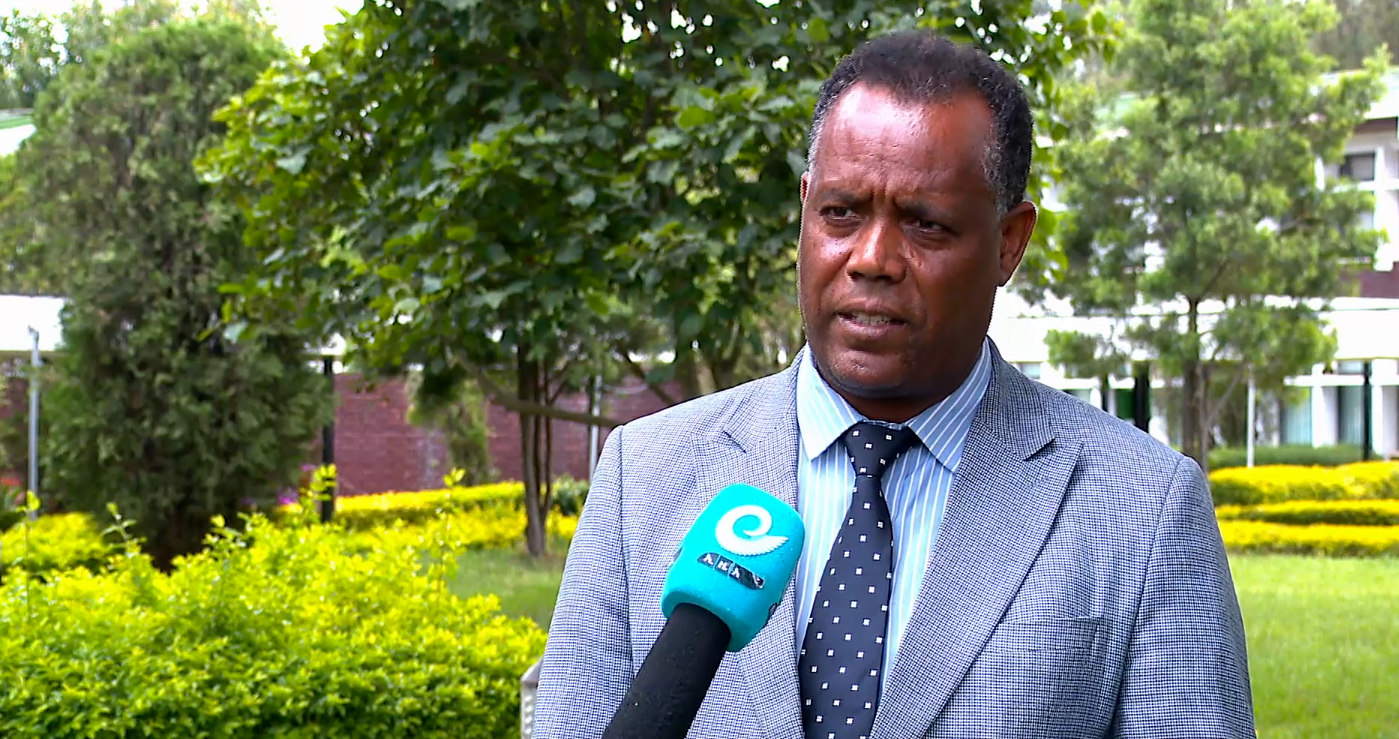Addis Ababa, May 16, 2025 (ENA) — Digital solutions and standards have been utilized in order to enhance the quality and safety of animal products and meet international standards, Livestock and Fishery Resources Development Sector State Minister Fikru Regassa said.
In an exclusive interview with ENA, the state minister noted that outbreaks and diseases in livestock have had a negative impact on both quality and quantity of animal products.
In response to these pressing challenges, innovative digital solutions have been developed to enable rapid intervention and address the health issues, he added.
Among them is the Disease Outbreak and Veterinary Action Reporting (DOVAR) and the Animal Disease Notification Information System (ADNIS), a smart phone application that enables effective animal disease monitoring and control, helping field personnel to quickly report potential outbreaks of significant diseases to decision-makers.
He explained that this digital tool can detect different animal diseases just by taking a picture, emphasizing their importance in facilitating prompt preventative measures before the illnesses can disseminate.
These tools are particularly effective as they accurately pinpoint the locations of outbreaks and outline potential solutions to address the issues at hand.
Moreover, the government has implemented a variety of policies designed to enhance the production and quality of animal products.
Multiple standards concerning quantity, quality, and nutrition have been established to guarantee that animal products are consistent across Ethiopia and supplied to the pertinent stakeholders.
According to Fikru, the decline in quality of animal products can take place not only during the production phase but also during the transportation of the products from markets to consumers.
In this context, Ethiopia is not only committed to ensuring that the products meet stringent quality standards, but also actively engaging with importing countries to understand their specific requirements.
He highlighted that this cooperative method seeks to tailor the products according to the preferences and standards of those specific markets.
Alongside the quality control agencies that are responsible for overseeing product standards, the Agricultural Control Authority has established its own set of quality criteria, specifically for export slaughterhouses, it was learned.
Furthermore, the authorities are proactively providing the required assistance to these facilities to guarantee that they adhere to the standards appropriately.
Additionally, continuous professional development programs are being introduced to improve the efficacy of abattoirs situated in cities, ensuring these facilities adhere to the required benchmarks for meat safety and quality.
The state minister highlighted that programs aimed at boosting understanding amongst farmers and pastoralists have grown more critical for enhancing livestock health and nourishment.
Provided by Syndigate Media Inc. (
Syndigate.info
).
